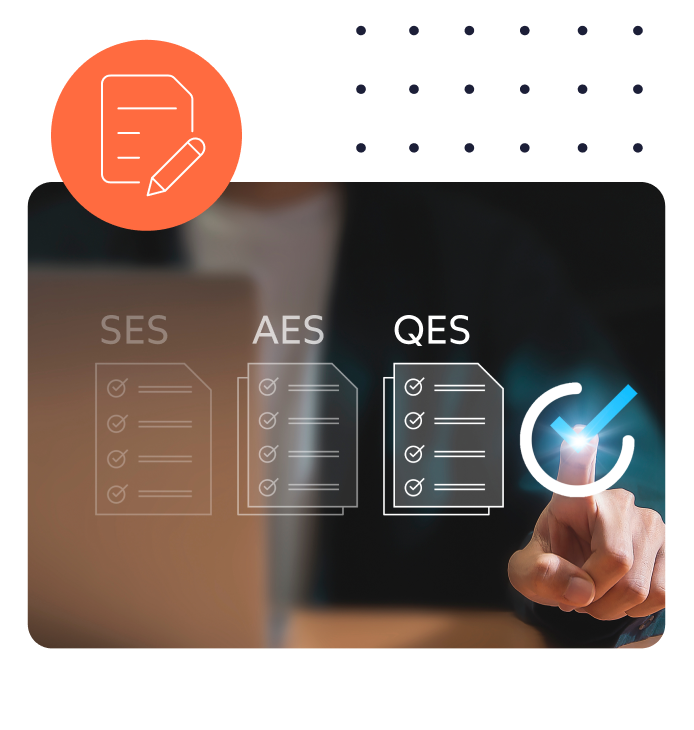What is the Kansspelautoriteit?
The Kansspelautoriteit (translated literally to Gaming Authority) is an independent regulatory authority in the Netherlands that operates on the behalf of the Minister for Legal Protection and works to enforce the country’s Gambling Act. It is the main regulator of the Netherlands’ games of chance market. The Kansspelautoriteit regulates Dutch gambling and betting activity, issues licenses, and enforces key gaming acts and regulations.
The authority was first established in 2012 and is led by a two member board of directors, as well as an advisory board.
What does the Kansspelautoriteit do?
The Kansspelautoriteit has a number of roles, however, they have stated that they have one task that takes priority above all else: player safety. The key role of the gaming authority is to protect players, allowing them to gamble safely, fairly, and without abuse.
To do this, they perform a variety of roles. This includes: regulating the Dutch gaming market by granting licenses, supervising and enforcing acts and regulations, supervising license holders, and providing support to players. One way they have achieved this is with CRUKS, a gambling self-exclusion system and database in the Netherlands, which allows users to exclude themselves from all gambling in the country.
Their official mission is:
- Working together with operators internally and externally towards a common goal. Every employee contributes to consumers being able to play safely.
- Understanding players, their behavior, and contributing to their safety by acting appropriately.
- To be knowledgeable. We know the risks in the different gambling sectors in terms of gambling addiction, fair play, and temptations to participate. We act if necessary and provide information to various target groups.
- To ensure a fair market. License holders are treated in the same way and illegality is dealt with. The playing field is equal for all games of chance providers.
- Working efficiently with smart systems and processes.
What are the duties of the Kansspelautoriteit?
The Kansspelautoriteit focuses on protecting customers, preventing gambling addiction, and fighting gambling-related fraud and crime. Additionally, the Kansspelautoriteit highlights five statutory tasks it undertakes, which are:
- Regulating the gaming market by granting licenses to compliant operators
- Carrying out risk-based supervision and enforcement, including checking ongoing compliance of operators
- Promoting the prevention of gambling addiction
- Providing gambling-related support and information to the government, organizations, and the public
- Preventing gambling-related match fixing and other crimes
More details of the role of the Kansspelautoriteit can be found via their website, specifically their strategy for 2020 to 2024.
The attempt of imposing a penalty on EA over FIFA loot boxes
In March 2022 a penalty issued by Kansspelautoriteit (KSA) to Electronic Arts (EA) has been revoked after a Dutch court ruled that loot boxes are not considered gambling products. Incidents, where children spend several thousand EUR on their parent's credit cards for loot boxes, happen frequently. Additionally, scientists from the University of British Columbia see links between loot boxes and gambling, resulting in the findings that "loot boxes overlap with gambling, and support the need for regulators to consider gambling-like mechanisms within video games.”
In March 2023, Videoslots, an online gaming operator, has accused the Kansspelautoriteit (KSA) gambling regulator of making unauthorized access to its website. In April 2022, the regulator attempted to gain access to VideoSlots' website as a Dutch mystery shopper but was blocked by the company's security systems. Subsequently, they gained entry under German identity and performed a single bet of 20 cents - validating their effectiveness in customer protection activities. The regulator hit them with a hefty €9.87m charge as punishment for allowing access to the website to Dutch consumers without a license, which due to Videoslots was unlawful access.
Closing a potential loophole for underage gamblers
In March 2022 the Dutch government announced closing a loophole, which allowed players to potentially deposit money from a bank account other than their own with a particular operator. Though no such instances were reported, this prevented KSA from effectively monitoring and regulating gambling behavior, particularly of minors. The Dutch government has since closed this loophole, allowing KSA to more effectively carry out its mandate. This will help to ensure that minors are not able to gamble online and put themselves at risk of developing gambling addiction or incurring debt.
Remote Gambling Act
In January 2021, with licenses issued in July 2021, Dutch regulators adopted new regulations to legalize online gambling in the Netherlands through the
Gaming Authority KSA (Kansspelautoriteit), with the Remote Gambling Act.
The act states that key issues, such as age verification and onboarding for all online players must be addressed by the operators. This means players must be identified and age-verified with a minimum age of 18. The identity check must be watertight and verifiable to the regulator at any time. A check of the current database is advised.
However, regulators strongly emphasize that age verification takes place before the registration process is completed. This means when operators allow a player to complete the registration process, the operator must proactively block an account until a player’s age has been verified. The government’s focus is to prevent minors from playing casino games or roulette. The regulation and guidance, in this case, works to emphasize the importance of and help operators prevent underage participation, including free play, at all times. In an effort to support the gaming operators in their social compliance efforts, the Dutch national exclusion register CRUKS is available.
Gaming operators face strict enforcement, and operators who do not comply with age verification will receive swift attention. In addition, they will face heavy fines and licenses will not be granted to operators who do not yet have a properly functioning Age Verification system. Operators are allowed to engage with existing customers to complete the verification process, but it is only permitted as long as they do not let the player participate until age verification is complete.
The Kansspelautoriteit’s key rules and guidelines
The Kansspelautoriteit has a long list of rules and guidelines that anyone who wishes to offer betting or gaming services in the Netherlands needs to follow.
This includes things like taking steps to prevent addiction, certain advertising limits, as well as specific regulations in certain regions and different operations (for example, specific rules when it comes to operating slot machines).
You can find a full list of rules and guidelines on the official Kansspelautoriteit website.
The Kansspelautoriteit - Malta Gaming Authority Memorandum of Understanding
The Kansspelautoriteit - Malta Gaming Authority Memorandum of Understanding was created in order to establish a cooperative relationship between the two authorities. Under the terms of this agreement, Kansspelautoriteit and Malta Gaming Authority have agreed to work together on the supervision of online gambling activities that affect both jurisdictions. This Memorandum of Understanding will enable both Kansspelautoriteit and Malta Gaming Authority to share information in support mutual respective goals and objectives related to matters of online gambling. Through this agreement, Kansspelautoriteit and Malta Gaming Authority ensure that there are suitable cooperation mechanisms in place for effectively monitoring any activities performed within their respective jurisdiction.



